2023 Dream Team winners
Every year, Spudman opens a call for entries for people who are making a difference in the potato industry. Now in its fourth year, these individuals have been chosen as the Spudman Dream Team winners.
Richard Pavelski
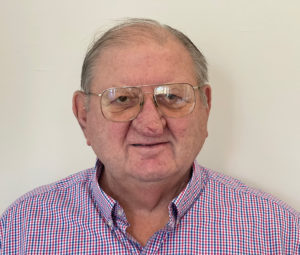
Richard Pavelski grew up on a 600-acre farm with 300 cows. After graduating high school in 1967, Pavelski returned home and doubled the size of his father’s farm. Pavelski’s younger brother also joined the farming operation, and the brothers grew frustrated with the inability to secure much-needed fertilizer.
To solve the fertilizer issue, Pavelski borrowed $10,000 and two trucks from his parents and started his own independent fertilizer and chemical company.
This company grew rapidly, and larger companies began asking Pavelski if he would be interested in selling. (Definitely not!) But both brothers now had small children, |and Pavelski’s brother asked Pavelski if he would consider coming back to the farm so that they could help each other.
Pavelski allowed his business to be put up for sale, and a bidding war ensued. He received an offer he couldn’t refuse.
The brothers then bought more land — now totaling around 30,000 acres — and split it. Pavelski’s daughter and son are now in the family farming business, and Pavelski spends his time running the Farming for the Future Foundation.
Farming for the Future Foundation will be opening a $40 million agricultural education center in August 2023 with the goal of bringing agriculture to schools through the schools’ science curricula. The program is already in 35 schools.
“Our mission is simple: People want to know where their food comes from, and farmers want to share those stories,” said Pavelski. “We want to create common ground, where people can learn more directly from the industry without taking away from the important work that must be completed to feed the growing world.”
More information can be found at FFTF.com.
Part of moving forward in farming is the technology now associated with it. For tech such as remote sensing, aerial imagery and satellite mapping, Pavelski thinks these tools are still in their infancy, even though he’s been using them for 25 years, because there is still so much to learn.
“It’s catching on now because of how far farm technology has come. Five years ago, the cameras were 100 lbs., and you just can’t get that on a drone,” he said.
Matthew Harris

Matthew Harris is a champion of Washington potatoes. As the assistant executive director and director of governmental affairs for the Washington State Potato Commission, Harris works to overcome technical and policy barriers to ensure a fair regulatory environment. He also works to educate about the effects of trade, transportation and regulatory barriers on the Washington potato industry.
His efforts involve preventing or removing unfair market access barriers by eliminating or limiting impediments affecting the sale and use of Washington state’s potatoes in local, domestic and foreign markets. Harris has been involved in the food and agriculture industry for 22 years, managing regulatory compliance for agricultural commodity organizations. He holds a B.S. degree in agricultural economics from Washington State University.
Mike Pink
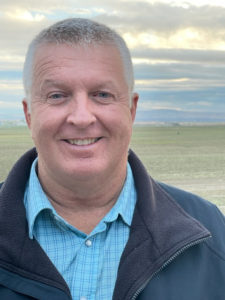
Mike Pink spent a lot of his childhood around farms. He began his own farming operation in 1987 in the Columbia Basin in the southeastern part of Washington State. His grandparents and his uncle were farmers, and if you asked him as a kid what he wanted to be when he grew up, he would say a farmer.
Or a helicopter pilot.
Pink was about to enroll in school in order to become a pilot when he changed his mind at the last moment and decided to stay home and farm. He started with 40 acres, none of which were potatoes, while he was in community college earning his agriculture chemistry degree.
It wasn’t until he began working at Wilbur-Ellis with the company’s “potato guru” that he planted 40 acres of potato, sold them and made a bit of money.
“I thought that was so cool, so the next year I planted 70 acres, and now I have 2,500 acres for processing,” Pink said.
Pink is the founder of Pink Farms and, along with his wife Davina, operates a diversified, irrigated farm that grows field corn, grass seed, beans, alfalfa hay, timothy hay and buckwheat. The main crop today is still potatoes that are dug beginning in July and finishing in October, and are directly delivered to several local processing plants. Along with the production of row crops, Pink Farms also runs a cow/calf operation.
Pink has been a sitting member on many of the larger potato boards. In the 1990s, he was selected for an opening at the Washington State Potato Commission. While there, he participated in a leadership training that hosted a tour of the then-called U.S. Potato Board.
“That got me motivated. I wanted to get into and do something for the industry I love, and that has done so much for my family and myself,” Pink said. “The rest is history.”
In the last 35 years, Pink has served on the Washington State Potato Commission, the National Potato Council, and was past chairman of Potatoes USA. He is currently a Potatoes USA board member, and is on the board of directors for APRE and Potato Growers of Washington.
Pink and his wife have loved raising their three daughters — Danika, Darbi and Delaney — on the farm, and look forward to continuing to grow the farming operation for the next generation, as they just welcomed their first grandchild in April 2022.
Ken Frost
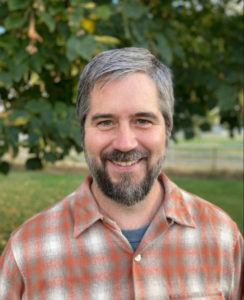 Ken Frost is focused on something very impactful to potato yields: pathogens. His concentration is on ecology, epidemiology and management of pathogens that cause diseases in irrigated vegetable crops.
Ken Frost is focused on something very impactful to potato yields: pathogens. His concentration is on ecology, epidemiology and management of pathogens that cause diseases in irrigated vegetable crops.
The primary goal of Frost’s research program is to develop disease management strategies that minimize disease outbreaks and enhance crop production efficiency in Oregon, but that are also practical, economical and environmentally compatible.
The research he conducts seeks to learn how variability in the environment affects pathogen growth, survival and dispersal, and influences disease intensity and pattern. Some of his recent studies have examined how different crop management practices change the soil microbiome and are associated with varying disease and yield outcomes. He is also interested to learn how pathogens and other members of the microbial community present in tare soils influence microbial community establishment on potato roots and plant health.
Frost received his M.S. and Ph.D. in plant pathology from the University of Wisconsin – Madison. He is an associate professor and Extension plant pathologist in the Department of Botany and Plant Pathology and located at the Hermiston Agricultural Research and Extension Center in Hermiston, Oregon.
John Mesko
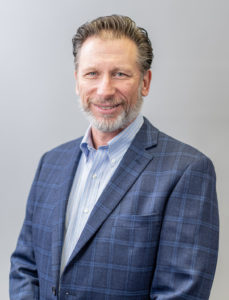
For John Mesko, agriculture is the most exciting thing people can do with the land.
“We create food for society, and there is nothing more noble we can do with the environment,” Mesko said.
The building of sustainable systems is a key element to ensuring farmers can continue to farm. With an understanding of food and farming rooted in his background, Mesko has been involved with sustainability for over 20 years, working with supply chain partners to help farmers learn about, evaluate and choose farming practices that make sense for their bottom line. This mission is paramount in an era where potatoes are becoming even more important to the global food supply.
When Mesko first started in the industry, there were some challenges and tension surrounding the idea of climate change and sustainability. But now, he sees that people are not disagreeing with the fact that the climate has changed, regardless of what they may blame.
“Everyone knows the climate is different from when I was a kid,” Mesko said.
As the executive director of the Potato Sustainability Alliance, Mesko and his team collect and report data and information that help to tell the unique story of potato sustainability. He speaks regularly about agricultural sustainability and is the host of the Resource Positive Agriculture podcast. He can be reached at [email protected].
Rookie of the Year: Mike Phillips
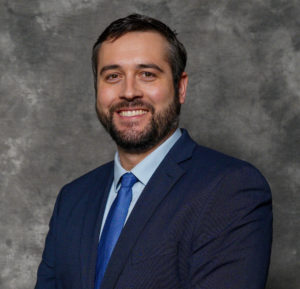
In just its second year, Rookie of the Year recognizes someone taking his or her career to new heights.
Mike Phillips is a 2022 graduate of the Potato Industry Leadership Institute (PILI) program by NPC and the Grower Leader for the 2023 class.
Phillips is an integral part of the team at Walther Farms, where he has worked for the last 11 years. Walther Farms is a third-generation, family-owned potato farm that started with a single location in Three Rivers, Michigan, and has now grown to multiple farms strategically located across the country. Phillips’ responsibilities include supply management, quality management, sales, contracting and customer service.
Phillips grew up in the suburbs of Chicago, and never would have guessed that he would make a career in agriculture.
“But I’m glad I did,” he said. “I find the agriculture industry, specifically potatoes, fascinating, as there has never been a dull moment.”
He has always been interested in manufacturing and production lines, which is what drew him to Walther Farms, where he started in the company’s shipping department. Phillips is looking forward to serving his recently appointed term on the Michigan Potato Industry Commission, and he is also excited to join the 2023 PILI trip.
About the PILI program, Phillips said, “It’s easy to get laser-focused on your local industry and company. The program allowed me to see the bigger picture and meet some amazing current and future potato industry leaders. Networking during our travels from coast to coast, touring multiple operations, professional business training and educating Capitol Hill on the industry, sums up the experience of a lifetime!”
Phillips graduated from Western Michigan University in 2009 with a degree in supply chain management. He and his wife, Missy, have three boys and Lucy, the family dog.







